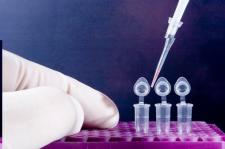Should Heritable Gene Editing Be Used on Humans?
By Marcy Darnovsky & George Church,
Wall Street Journal
| 04. 10. 2016
"YES" by George Church; "NO" by Marcy Darnovsky
The development of technology that allows human genes to be edited has stirred tremendous excitement about the potential for treating debilitating and life-threatening diseases. The technology could lead to drugs that would treat cancers and other diseases that currently are incurable.
But another facet of this breakthrough has many scientists and others worried: the possibility that the genetic makeup of sperm and eggs could be edited so that diseases that can be inherited won’t be passed on to children yet to be born. One concern is that gene editing that affects future generations, not just an individual, is too risky given our still incomplete understanding of the human genome and how changes might affect it. Another is that the ability to edit heritable traits could result in so-called designer babies, with parents choosing traits such as intelligence or physical characteristics.
Others say we can meet those challenges, and the potential benefits are too great to pass up.
George Church, professor of genetics at Harvard Medical School, favors a careful exploration of the potential of heritable gene editing. Marcy Darnovsky, executive...
Related Articles
By Scott Solomon, The MIT Press Reader | 02.12.2026
Chris Mason is a man in a hurry.
“Sometimes walking from the subway to the lab takes too long, so I’ll start running,” he told me over breakfast at a bistro near his home in Brooklyn on a crisp...
By Zachary Brennan, Endpoints News | 02.23.2026
The FDA is spelling out the details of a new pathway to help speed personalized cell and gene therapies to market for rare diseases.
Monday’s long-awaited draft guidance outlines the agency’s “plausible mechanism” framework, a pathway FDA Commissioner Marty Makary...
By Amy Feldman, Forbes | 02.17.2026
"Jennifer Doudna" by Duncan Hull for the Royal Society via Wikimedia Commons licensed under CC by SA 3.0
Soon after KJ Muldoon was born in August 2024, he was lethargic and wouldn’t eat. His worried doctors realized his ammonia...
By David Jensen, California Stem Cell Report | 02.10.2026
Touchy issues involving accusations that California’s $12 billion gene and stem cell research agency is pushing aside “good science” in favor of new priorities and preferences will be aired again in late March at a public meeting in Sacramento.
The...




